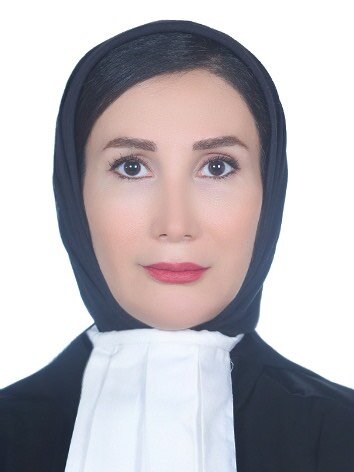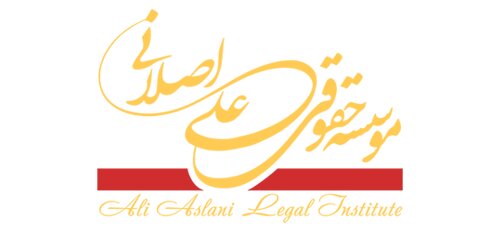Best Domestic Violence Lawyers in Iran
Share your needs with us, get contacted by law firms.
Free. Takes 2 min.
Free Guide to Hiring a Family Lawyer
Or refine your search by selecting a city:
List of the best lawyers in Iran
About Domestic Violence Law in Iran
Domestic violence in Iran is a significant issue that affects many individuals and families. The law in Iran prohibits domestic violence and provides legal protections for victims. It is crucial for individuals who are experiencing domestic violence to understand their rights and options for seeking help.
Why You May Need a Lawyer
A lawyer can provide valuable guidance and support to individuals who are experiencing domestic violence in Iran. They can help victims understand their legal rights, navigate the legal system, and seek protection through restraining orders or other legal remedies. A lawyer can also represent victims in court proceedings and advocate on their behalf to ensure their safety and well-being.
Local Laws Overview
In Iran, domestic violence is governed by the Civil Code and the Islamic Penal Code. The law prohibits physical, psychological, and sexual violence against family members, including spouses, children, and other relatives. Victims of domestic violence can seek protection through restraining orders, criminal charges, and other legal measures to ensure their safety.
Frequently Asked Questions
What is considered domestic violence in Iran?
Domestic violence in Iran includes physical, psychological, and sexual abuse against family members.
How can I seek help if I am experiencing domestic violence?
If you are experiencing domestic violence in Iran, you can contact the police, a lawyer, or a local women's shelter for assistance.
Can I file for divorce due to domestic violence?
Yes, victims of domestic violence can file for divorce in Iran on the grounds of abuse and violence.
How can a lawyer help me if I am experiencing domestic violence?
A lawyer can help you understand your legal rights, seek protection through restraining orders, and represent you in court proceedings.
What legal protections are available for domestic violence victims in Iran?
Domestic violence victims in Iran can seek protection through restraining orders, criminal charges, and other legal measures to ensure their safety.
What should I do if I witness domestic violence in Iran?
If you witness domestic violence in Iran, you can report the incident to the police or a local women's shelter to ensure the victim receives the help they need.
Are there specific laws in Iran to protect children from domestic violence?
Yes, the law in Iran prohibits domestic violence against children and provides legal protections for minors who are victims of abuse within the family.
Can I get a restraining order against my abuser in Iran?
Yes, victims of domestic violence in Iran can obtain a restraining order against their abuser to protect themselves from further harm.
How can I access legal aid for domestic violence in Iran?
You can contact a lawyer, a legal aid organization, or a women's shelter for assistance with domestic violence in Iran.
What are the penalties for domestic violence in Iran?
The penalties for domestic violence in Iran vary depending on the severity of the abuse and may include fines, imprisonment, or other legal consequences for the perpetrator.
Additional Resources
For additional resources and support related to domestic violence in Iran, you can contact the Women's Social and Cultural Council, the Legal Aid Organization, or the Center for Women and Family Affairs for assistance.
Next Steps
If you are experiencing domestic violence in Iran and need legal assistance, it is important to contact a lawyer or a local women's shelter for help. They can provide you with guidance on your legal rights, options for seeking protection, and advocacy in court proceedings to ensure your safety and well-being.
Lawzana helps you find the best lawyers and law firms in Iran through a curated and pre-screened list of qualified legal professionals. Our platform offers rankings and detailed profiles of attorneys and law firms, allowing you to compare based on practice areas, including Domestic Violence, experience, and client feedback.
Each profile includes a description of the firm's areas of practice, client reviews, team members and partners, year of establishment, spoken languages, office locations, contact information, social media presence, and any published articles or resources. Most firms on our platform speak English and are experienced in both local and international legal matters.
Get a quote from top-rated law firms in Iran — quickly, securely, and without unnecessary hassle.
Disclaimer:
The information provided on this page is for general informational purposes only and does not constitute legal advice. While we strive to ensure the accuracy and relevance of the content, legal information may change over time, and interpretations of the law can vary. You should always consult with a qualified legal professional for advice specific to your situation.
We disclaim all liability for actions taken or not taken based on the content of this page. If you believe any information is incorrect or outdated, please contact us, and we will review and update it where appropriate.
Browse domestic violence law firms by city in Iran
Refine your search by selecting a city.
















